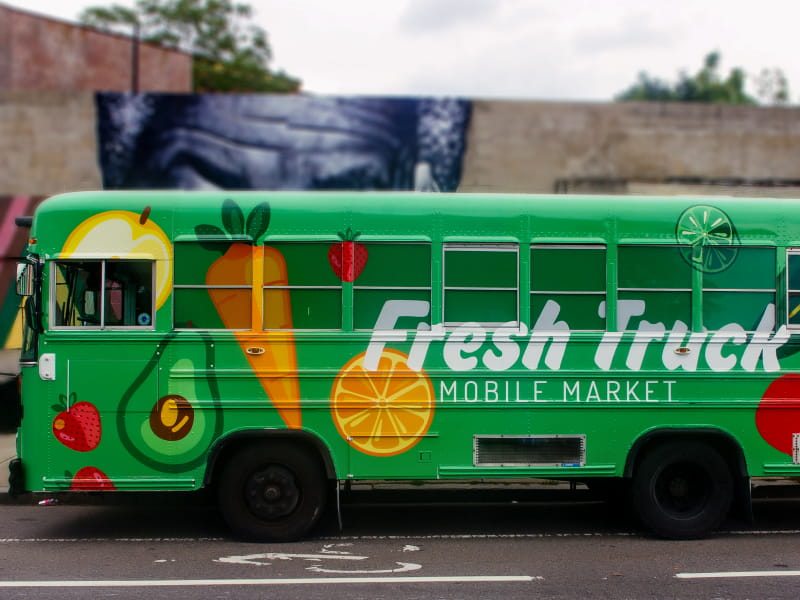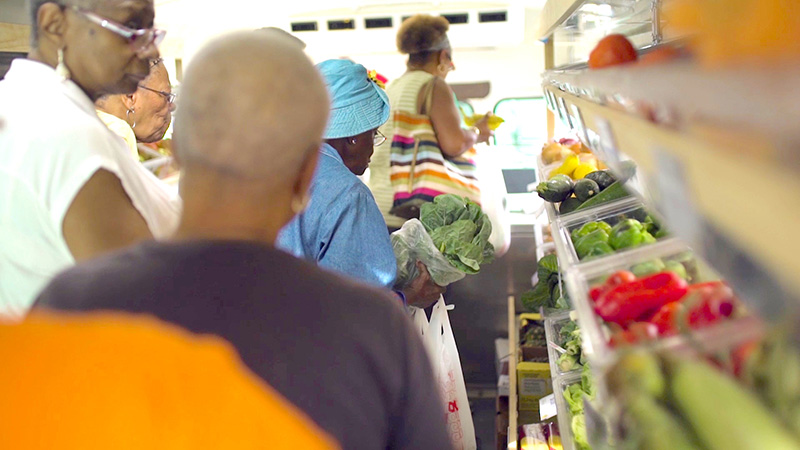Boston's Fresh Truck helps neighborhoods connect to healthy meals
By American Heart Association News

Three converted school buses rumble through 18 low-income Boston neighborhoods. They carry the cargo that for too long has been scarce: fresh, healthy food.
These mobile grocery stores, called Fresh Truck, bring some 30 to 40 varieties of affordable vegetables and fruits to homes most in need. The aim is to improve health, said Josh Trautwein, who runs the social enterprise About Fresh with co-founder Annika Morgan.
Trautwein, 32, got a taste of food insecurity at his first job out of college, at a health center coordinating a nutrition program for low-income families. When the only grocery store temporarily closed (and later reopened as a pricey chain store), he began to understand how food deserts affect people's ability to eat a healthy diet.
Fresh Truck helps fill the need – for good food and education.
It doesn't charge typical grocery store margins. There's a lot of diversity across Boston neighborhoods, so it carries cultural staples like yuca, mangoes and plantains. Trautwein and team skip the lectures about bad foods, instead focusing on sharing with kids how "healthy food has you at your best" at school and for sports, for energy and for mood.

"We're trying to create opportunities for kids to fall in love with healthy food," Trautwein said.
Fresh Truck also partners with local medical providers and nonprofits to host pop-up markets where they sell healthy foods. Community partners offer everything from blood pressure testing to culturally appropriate cooking classes.
But Trautwein is on a path to do more. Last year, his nonprofit created FreshConnect, a digital platform to make it possible for health care providers and other organizations to prescribe food as medicine – food that folks can buy on Fresh Truck through a gift card system. In return, providers get information on their patients' eating habits to analyze the health impact.
"Food is one of the principal drivers of chronic disease and health care utilization," Trautwein said. "A lot of people get sick because they don't have money for healthy food or it's not close by in their community."
Nearly 40 million Americans live in homes that don't always have enough food for everyone in the family, according to Feeding America. In three of the poorest areas of greater Boston – Roxbury, Dorchester and Mattapan – there are more fast food restaurants per capita than all other neighborhoods combined, and those neighborhoods experience the city's worst health outcomes, Trautwein said.
To make change, evidence matters.
A recent investment from the American Heart Association's Social Impact Fund will help FreshConnect reach more patients. It aims to reach a sufficient scale to prove the health benefits for patients and cost savings for health care organizations when they subsidize the purchase of healthy foods.
"We're going to be able to make more of a data-driven case for impact," Trautwein said.
If you have questions or comments about this story, please email [email protected].





